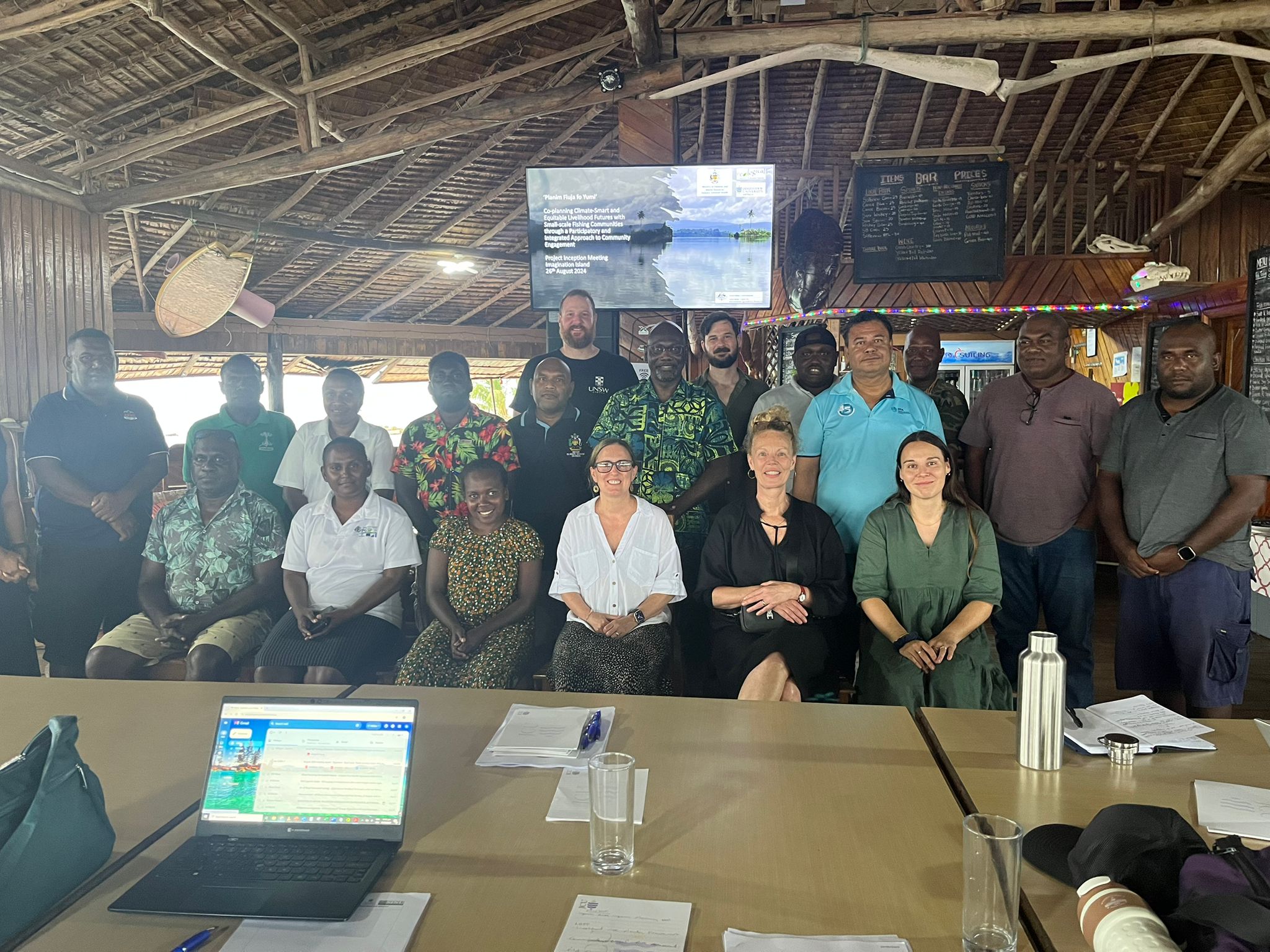For many coastal communities in the Solomon Islands, fishing is not only an economic activity but also deeply tied to culture, food security and community wellbeing. However, escalating environmental threats like sea level rise, coastal erosion, coral degradation and shifting fish stocks are adding uncertainty to livelihoods. Governance systems around marine resources are also often fragmented across sectors and levels of government, complicating efforts to plan for equal and sustainable futures.
However, a new ACIAR-supported project is helping small-scale fishing communities across the Solomon Islands to plan for more sustainable and equitable futures.
The 5-year, $A3.82 million 'Planim Fiuja fo Yumi' project recently held an inception meeting in the Solomon Islands. The project aims to equip communities and decision-makers with tools and participatory processes to jointly assess and plan for multiple hazards and development pressures. This collaborative project is led by James Cook University in partnership with Ecological Solutions Solomon Islands (ESSI), Solomon Islands National University (SINU) and Solomon Islands Ministry of Fisheries and Marine Resources (MFMR).
Grounded in local needs
Building on from previous ACIAR research which established strong networks in rural fishing communities in the Western Province, the project aims to help these communities identify and pursue livelihood pathways and adapt to emerging risks in a proactive and informed way.
Associate Professor Amy Diedrich, the project leader from James Cook University, said the partnerships established in the previous research will ensure that the new project remains grounded in local needs and is responsive to both community and government priorities.
'We want to see communities taking the lead in strengthening their livelihoods in ways that are fair, informed by local risks, and sustainable,' said Professor Diedrich.
'This means using local, map-based information to plan for future challenges, finding funding to support livelihood projects and making decisions that protect both their income and the marine environment.'
The August inception meeting brought together researchers, team leaders and the project's steering committee. Chaired by the Solomon Islands Ministry of Fisheries and Marine Resources, this committee includes government members from the fisheries, environment, climate change, forestry and tourism sectors. The committee endorsed the project's direction, refined its goals to match local needs and looked at how it could support other programs for small-scale fishing communities.

Associate Professor Diedrich said the new project will apply a risk-based, map-focused approach to the Solomon Islands Integrated Vulnerability Assessment (SIIVA), which is a national tool led by the Ministry of Environment, Climate Change, Disaster Management and Meteorology to identify and map areas of vulnerability and risk. Communities will then use this information to guide their adaptation, and livelihood plans through the Community-led Adaptation Pathways in the Solomon Islands (CAPSI) framework.
'The project is also using the Participatory and Integrated Planning Approach (PIPA) designed to support livelihood planning and adaptation processes,' she said. 'The approach ensures that communities are actively involved in assessing risks and designing adaptation strategies.'
The project intends to support decision-makers to understand complex and interactive risks faced by fishing communities, both now and in the future (including climate change, natural resource exploitation, demographic and socio-economic challenges.) As part of the project, local leaders and government staff at different levels will be trained to teach others how to use the project tools, so the knowledge stays in the community after the project ends. To help with this, SINU will develop a short course in spatial science to build local skills for using these planning tools.
Potential Pacific-wide impact
Recognising strong partnerships as the foundation of the 'Planim Fiuja fo Yumi' project, ESSI will be the in-country lead.
'Our long-term work with rural communities across the Solomon Islands has shown that lasting change comes when local people are at the centre of decision-making,' said Mr David Boseto, co-director of ESSI.
'Through this project, we're helping communities build the confidence, knowledge and skills they need to plan for their own sustainable future.'
ACIAR Research Director, Dr Ingrid van Putten, said the project could play a key role in helping communities anticipate changes, manage risks and make informed decisions so that both livelihoods and ecosystems are more resilient.
'Over the next few years, field activities, workshops and consultations will be rolled out across Solomon Islands' small‐scale fishing regions. Monitoring and evaluation will be vital to assess how effectively governance bottlenecks are addressed, and whether communities are experiencing improved capacity to handle risk and change.'
If successful, lessons from this project may inform policy not just in Solomon Islands but also in the wider Pacific region, where many island nations face similar challenges of fragmentation, climate risk and the need for integrated planning.'
Learn more about this project






